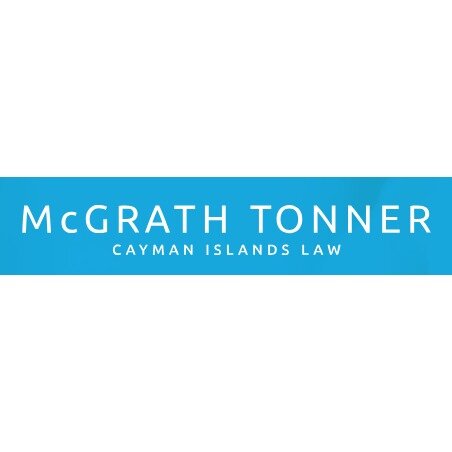Best Renewable & Alternative Energy Lawyers in George Town
Share your needs with us, get contacted by law firms.
Free. Takes 2 min.
List of the best lawyers in George Town, Cayman Islands
About Renewable & Alternative Energy Law in George Town, Cayman Islands
Renewable and alternative energy law in George Town, Cayman Islands is a developing area focused on the regulation and encouragement of sustainable energy solutions. As the largest city and administrative center of the Cayman Islands, George Town is actively participating in the nation’s efforts to diversify energy sources, reduce dependence on imported fossil fuels, and address environmental concerns. Renewable energy initiatives include solar, wind, and geothermal projects, as well as energy efficiency measures and incentives for both individuals and businesses to adopt alternative energy technologies. The legal field in this sector involves all regulations, permits, and compliance frameworks governing the development, installation, and operation of renewable energy systems.
Why You May Need a Lawyer
There are several situations where legal assistance becomes essential in renewable and alternative energy projects in George Town. Some of the most common reasons to consult an attorney include:
- Navigating the complexities of obtaining permits and licenses for solar, wind, or other renewable energy installations
- Advising on land use, leasing, or acquisition agreements for energy projects
- Negotiating power purchase agreements with local utility providers
- Ensuring compliance with environmental and planning regulations
- Handling disputes over property boundaries, easements, or contract terms related to energy projects
- Understanding grid connection requirements for private or commercial renewable systems
- Assisting with government incentives, grants, or tax relief linked to renewable investments
- Guiding businesses through corporate structuring for energy ventures
The legal landscape can be complex, so specialized knowledge is often necessary to protect your interests and ensure your project’s success.
Local Laws Overview
Several key legal and regulatory aspects are relevant for renewable and alternative energy in George Town, Cayman Islands. Some of the most important include:
- The National Energy Policy (2017-2037) sets national goals for reducing carbon emissions and increasing renewable energy integration.
- Licensing and oversight are typically handled by the Utility Regulation and Competition Office (OfReg), which regulates energy suppliers, licensing for independent power producers, and grid access.
- Solar and other renewable systems must comply with the Cayman Islands Building Code and planning laws, particularly concerning structural safety and aesthetics.
- Net metering programs allow some residential and commercial users to supply surplus energy back to the grid, subject to strict technical and legal standards.
- Environmental Impact Assessments may be required for larger projects, especially those with potential effects on protected areas or marine life.
- Land ownership and lease regulations will determine whether and how you can use a property for energy purposes.
- Contractual law governs relationships between installers, customers, utilities, and investors, making clear legal agreements essential.
Frequently Asked Questions
What types of renewable energy are most common in George Town?
Solar energy is the most widely adopted renewable resource, both for residential and commercial uses, while pilot projects for wind and geothermal are under exploration.
Do I need permission to install solar panels on my home or business?
Yes, you must comply with local building codes, planning approvals, and may need a license from OfReg depending on the system size and whether it connects to the grid.
Are there incentives for installing renewable energy systems?
Government programs and utility incentives may be available, though availability and terms can change. A lawyer can help you identify and apply for these benefits.
What is net metering, and is it available in the Cayman Islands?
Net metering allows you to sell excess power produced by your system back to the grid. In the Cayman Islands, net metering is permitted but subject to strict rules and technical caps.
What are the main legal risks of a renewable energy project?
Risks include failing to obtain necessary permits, non-compliance with building or environmental laws, unclear contractual terms, and potential disputes with neighbors or partners.
Can businesses invest in renewable energy projects?
Yes, businesses can participate in renewable projects for their own facilities or as independent power producers, subject to registration, licensing, and regulatory oversight.
What legal considerations are there for leasing land for renewable projects?
Leasing land requires clear agreements addressing access rights, term length, insurance, environmental responsibility, and conditions for terminating or transferring leases.
Who regulates the energy market in the Cayman Islands?
The Utility Regulation and Competition Office (OfReg) oversees the energy sector, including licensing, compliance, and dispute resolution.
Is an Environmental Impact Assessment always required?
Not always. Small projects may be exempt, but larger or environmentally sensitive developments usually require an assessment and official approval.
How can a lawyer assist with power purchase agreements?
Lawyers ensure contracts are fair, protect your interests, meet legal standards, and clearly define rates, delivery terms, dispute resolution, and liability.
Additional Resources
If you need more information about renewable and alternative energy in George Town, consider consulting these organizations and sources:
- Utility Regulation and Competition Office (OfReg) - Regulator for electricity and energy markets
- Cayman Islands Department of Environment - Guidance on sustainable development and environmental protection
- Ministry of Sustainability & Climate Resiliency - Oversees national policy and programs
- Cayman Renewable Energy Association - Industry body for renewable energy professionals
- Planning Department - Responsible for building permits and planning approvals
Next Steps
If you are considering a renewable or alternative energy project in George Town, Cayman Islands, or require legal advice, here is how you can proceed:
- Gather relevant information about your project, such as location, scale, and intended technology
- Familiarize yourself with local laws and regulatory requirements affecting your project
- Reach out to the appropriate governmental bodies for preliminary guidance on permits and incentives
- Consult with a specialized lawyer familiar with renewable energy and Cayman Islands law
- Prepare all necessary documentation for permit applications, environmental assessments, and contracts
- Stay updated on policy changes or new incentive programs offered by the Cayman Islands government
Legal guidance will help you avoid costly mistakes, ensure compliance, and successfully advance your renewable energy ambitions in George Town.
Lawzana helps you find the best lawyers and law firms in George Town through a curated and pre-screened list of qualified legal professionals. Our platform offers rankings and detailed profiles of attorneys and law firms, allowing you to compare based on practice areas, including Renewable & Alternative Energy, experience, and client feedback.
Each profile includes a description of the firm's areas of practice, client reviews, team members and partners, year of establishment, spoken languages, office locations, contact information, social media presence, and any published articles or resources. Most firms on our platform speak English and are experienced in both local and international legal matters.
Get a quote from top-rated law firms in George Town, Cayman Islands — quickly, securely, and without unnecessary hassle.
Disclaimer:
The information provided on this page is for general informational purposes only and does not constitute legal advice. While we strive to ensure the accuracy and relevance of the content, legal information may change over time, and interpretations of the law can vary. You should always consult with a qualified legal professional for advice specific to your situation.
We disclaim all liability for actions taken or not taken based on the content of this page. If you believe any information is incorrect or outdated, please contact us, and we will review and update it where appropriate.

















